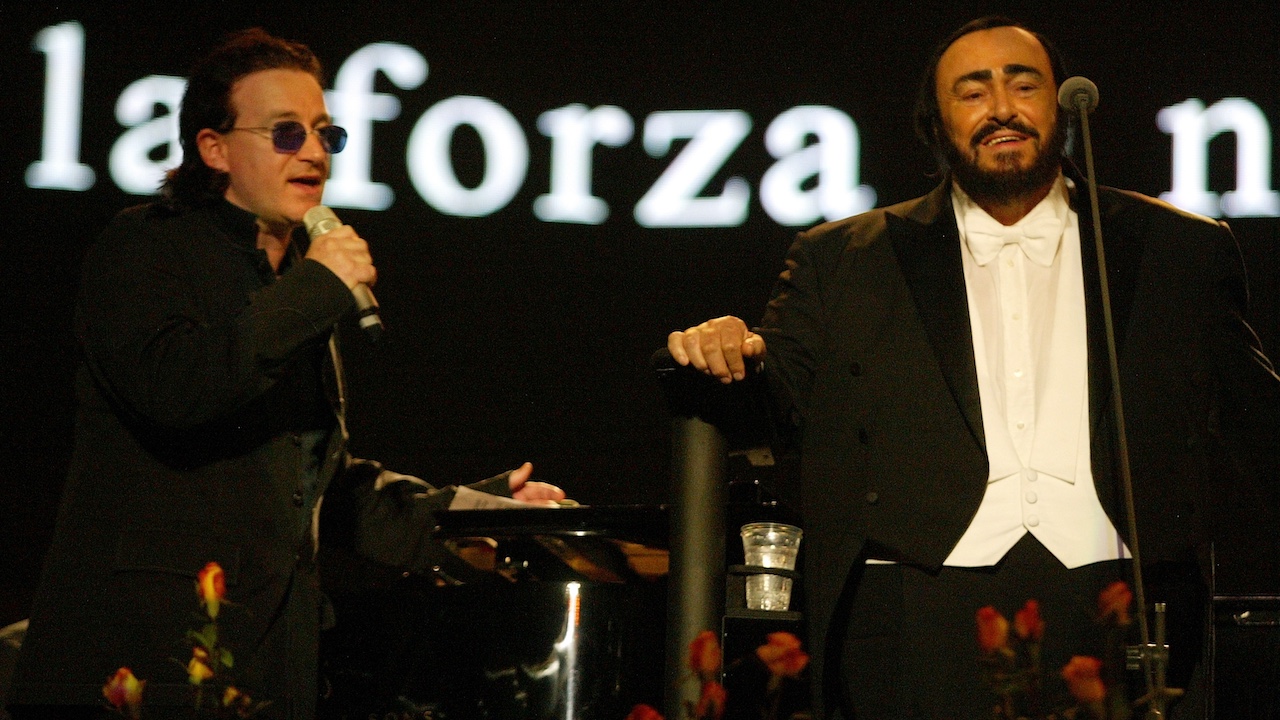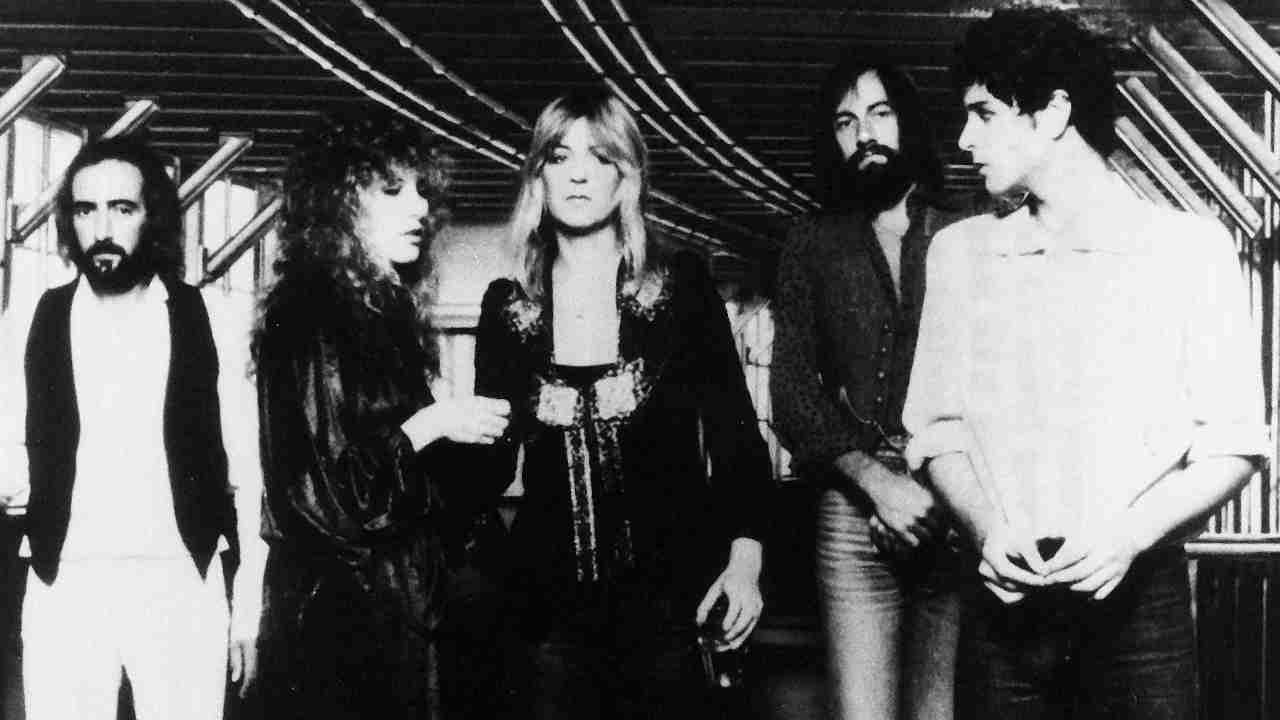“Pavarotti is our hero, he’s more rock’n’roll than anyone we’ve ever met before”: the story of Bono’s favourite U2 song, even though it isn’t by U2 and features an operatic legend on vocals
The epic ballad that was the sole high point of the Irish rockers’ ill-fated and experimental side-project in the mid-90s

Select the newsletters you’d like to receive. Then, add your email to sign up.
You are now subscribed
Your newsletter sign-up was successful
Want to add more newsletters?

Every Friday
Louder
Louder’s weekly newsletter is jam-packed with the team’s personal highlights from the last seven days, including features, breaking news, reviews and tons of juicy exclusives from the world of alternative music.

Every Friday
Classic Rock
The Classic Rock newsletter is an essential read for the discerning rock fan. Every week we bring you the news, reviews and the very best features and interviews from our extensive archive. Written by rock fans for rock fans.

Every Friday
Metal Hammer
For the last four decades Metal Hammer has been the world’s greatest metal magazine. Created by metalheads for metalheads, ‘Hammer takes you behind the scenes, closer to the action, and nearer to the bands that you love the most.

Every Friday
Prog
The Prog newsletter brings you the very best of Prog Magazine and our website, every Friday. We'll deliver you the very latest news from the Prog universe, informative features and archive material from Prog’s impressive vault.
The 90s started with a bang for U2 but the rest of the decade was a little more hit-and-miss. After they had reinvented themselves with the forward-facing post-rock’n’roll swagger of Achtung Baby and then reinvented stadium-rock with its accompanying, eye-popping Zoo TV tour, Bono & co. let their imaginations run a little too wild over their next few records.
Recorded in breaks from those Zoo TV dates, 1993’s Zooropa contained some powerful moments but felt mostly undercooked, the lasting feeling being that maybe it should and could have been an EP. It was followed by 1997’s Pop, which felt like the first time their songwriting just wasn’t up to scratch, an album built around an idea (“Let’s do a dance record!”) that, bar a few standouts, was never fleshed out with songs to match.
In the middle of those two records, though, came the project that really underlined how U2 had gone off-road and forgot to change their tyres. This one wasn’t even officially a U2 album. A collaboration with their long-standing producer and artistic guru Brian Eno, Original Soundtracks 1 was instead released under the name of Passengers.
It made for their most experimental batch of material yet, moving away from the yearning melodicism and giant hooks for which they had become famous and into prime Eno territory, a land of airy atmospherics and ambient soundscapes.
“We wanted to do a project with Brian Eno that was not a U2 album because we’ve been fans of his work for such a long time,” guitarist The Edge said in a promotional interview at the time, “so we went into the studio with Brian to explore this idea of collaborating, songwriting or composing, whatever you want to call it, together, and Brian came up the idea of using a set of strategies, starting the project not with a set of ideas but a scenario of the five of us in a room improvising together.”
“We saw Brian as a great catalyst,” said Bono, speaking in the band’s official tome U2 By U2, “but the thought did strike us that it would be nice to formally write with him, the way he had with Talking Heads and David Bowie.”
The idea was that the newly-assembled five-piece would come up with music for imaginary films and, on songs such as Theme From Let’s Go Native, Slug, Elvis Ate America and more, that’s exactly what they did.
The latest news, features and interviews direct to your inbox, from the global home of alternative music.
As you might expect for a U2 album not released the name U2, the album was not a huge commercial success compared to their usual sales, and it was a mixed artistic one too. There’s a reason that there has never been an Original Soundtracks 2. Drummer Larry Mullen Jr. would probably veto it, anyway. “It was a little self-indulgent,” he has commented. “I thought we might be pushing our audience too far. I think there are some great songs and a couple of interesting ideas on that record but, for me, it didn’t go anywhere.”
But there is one moment of outstanding excellence that saves Original Soundtracks 1 from complete ignominy. Seven tracks in to the album sits the majestic Miss Sarajevo. It was the only song put out as a single from the album, released 30 years ago next week on 20 November, 1995.
A hazy, swaying ballad, it is now regarded as a U2 classic – not least by the band themselves. In an interview with the French journalist Michka Assayas, Bono claimed it was his favourite U2 song and elaborated on the theme in U2 By U2. “Miss Sarajevo is a song that has got to be right up there,” he marvelled.”
His love for the track, you imagine, is heightened by the fact it features a stirring vocal from late operatic powerhouse Luciano Pavarotti. “That was a trip, to write a libretto for a voice like Pavarotti’s,” Bono said. “To get into the right frame for that that I was impersonating my father singing in the bath impersonating Pavarotti.”
The Italian tenor had been badgering the Irish rockers to write something for him, Bono stated. “He had been asking for a song,” Bono explained. “In fact, asking is an understatement. He had been crank-calling the house. He told me that if I didn’t write him a song, God would be very angry.”
Pavarotti’s section was written by Bono in English and translated by a friend of the band. They were in awe of the singing giant. “Pav is our hero, he’s much more rock’n’roll than anyone we’ve ever met before,” The Edge exclaimed. “When you enter Pavarotti’s world, it’s like this place where all other normal realities are suspended. He’s not just the king of his kingdom, he’s like an emperor, it’s quite astonishing. Within his world of opera, he’s like Elvis. It was incredible to see how he operated.”
The song was written as a message of hope and admiration for the citizens of Sarajevo, then in the midst of a devastating siege of their city as part of the Bosnian War. Where the majority of Original Soundtracks 1 was written for fake films, Miss Sarajevo was penned for a real one, a documentary that Bono had co-produced about the people of Sarajevo. “It’s about the underground life of Sarajevo and the life of the youth culture and the everyday surrealists that the Sarajevan have become, just to get on with their day, they’ve developed this black sense of humour,” the frontman told Radio 1’s Simon Mayo.
The track homed in on a beauty pageant that a group of Sarajevan women had put on in an act of defiance. “The beauty pageant was again a way for the women to feel that they were contributing not only on the frontline but back in the city as well by lifting people’s spirits,” Bono continued, “making people laugh and it was really about that beauty pageant that the song was written.”
The song also curiously features a line mentioning 90s pop tykes East 17 in one of its verses, the lyric going “Is there a time for first communion/A time for East 17/Is there time to turn to Mecca/Is there time to be a beauty queen”. What feels like an odd pop throwaway reference does have a deeper meaning, though.
In Sarajevo they have this shelter there which is really just a big disco,” Bono said. “At nights, they turn up the music to deafening levels to drown out the noise of the shelling, cos all their nerves are shattered and when they hear a shell falling, it could be their house, it could be their loved ones, so they have the music on very loud, they play our music there, Massive Attack are very popular there and one of the most popular pop groups are East 17.”
The Edge also pointed out that it happily rhymed with “beauty queen”, something that ruled out Take That getting a mention instead.
U2 have regularly played Miss Sarajevo at their shows over the years. During their Vertigo Tour in the mid-00s, it was accompanied by a video of a woman reciting the Universal Declaration Of Human Rights at its end and was also aired during their 2017 Joshua Tree tour to highlight the Syrian refugee crisis – Bono said the song was retitled Miss Syria during that period.
Watch the video for the original version below:
Niall Doherty is a writer and editor whose work can be found in Classic Rock, The Guardian, Music Week, FourFourTwo, Champions Journal, on Apple Music and more. Formerly the Deputy Editor of Q magazine, he co-runs the music Substack letter The New Cue with fellow former Q colleague Ted Kessler. He is also Reviews Editor at Record Collector. Over the years, he's interviewed some of the world's biggest stars, including Elton John, Coldplay, Radiohead, Liam and Noel Gallagher, Florence + The Machine, Arctic Monkeys, Muse, Pearl Jam, Depeche Mode, Robert Plant and more.
You must confirm your public display name before commenting
Please logout and then login again, you will then be prompted to enter your display name.


